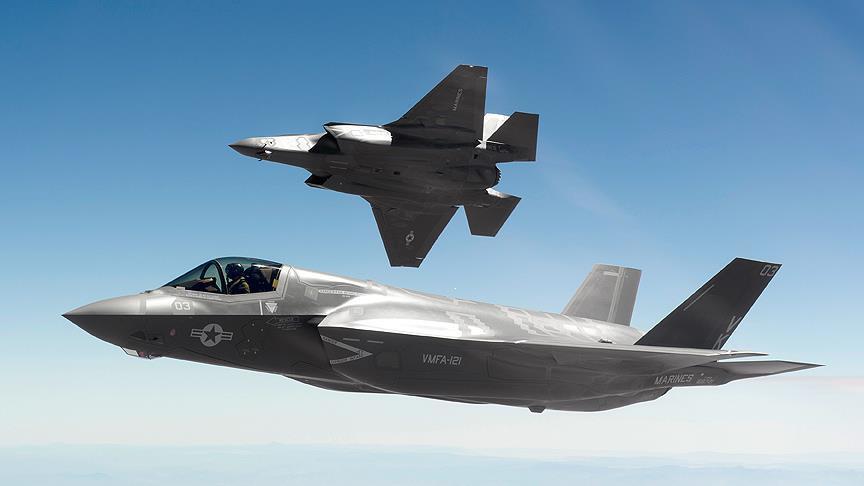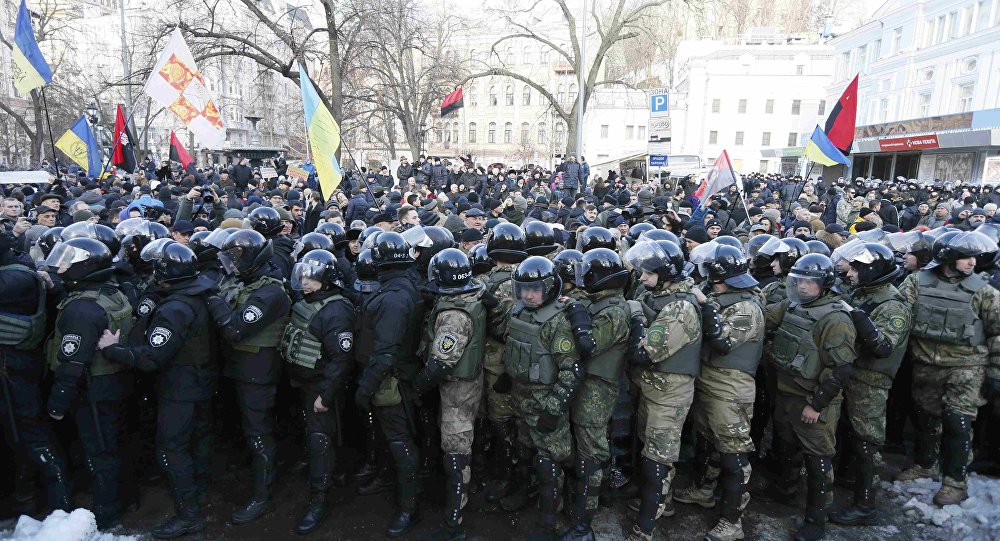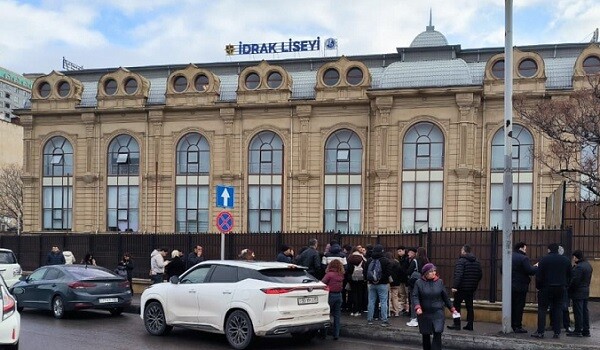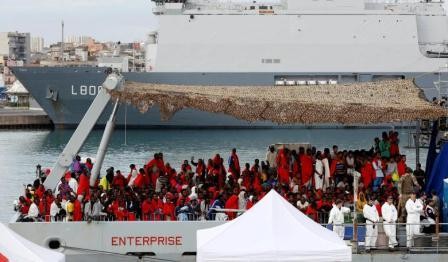The European Union will go ahead with training for the
Libyan coast guard this week, days after a coast guard vessel
allegedly attacked a boat carrying migrants, causing four of them
to drown.
The German humanitarian group Sea-Watch recovered the four
bodies after an attack on Friday that its members say was carried
out by a vessel with the markings of the Libyan coast guard.
"The aim was to start the training this week, and this week it
will start," the spokesman for the EU's Operation Sophia, Antonello
De Renzis Sonnino, told Reuters.
The bodies of the four migrants reached Palermo, Sicily, on
Monday aboard the Norwegian rescue vessel Siem Pilot, which carried
1,100 rescued migrants and 13 other bodies.
A spokesman for the Libyan naval forces in Tripoli denied on
Saturday that it had attacked the migrant boat but admitted it
boarded the rubber dinghy.
Helped by Libya-based people smugglers, some 150,000 people have
set off for Italy in unseaworthy boats so far this year. More than
3,100 died or disappeared during the crossing, making the Central
Mediterranean the world's most dangerous border for migrants.
Since Friday, more than 6,000 men, women and children have been
rescued at sea. Migrant rescues are often complicated in Libya,
where the U.N.-backed Tripoli government is struggling to impose
its authority.
To help stem the flow of migrants, the EU agreed earlier this
year to train the Libyan coast guard, which currently lacks the
personnel and equipment to patrol over 1,700 km (1,056 miles) of
coastline.
Beginning with up to 100 people this week, the EU aims to train
around 1,000 Libyan coast guard members in total.
"If anything, last week's incident shows that there's a need for
more training and there's a need for it soon," said a government
source in Italy, one of the countries participating in the
training.
A Palermo court has opened an investigation into the incident,
prosecutor Maurizio Scalia told Reuters from the port, where the
bodies were taken off the Siem Pilot in brown coffins.
"We will collect all the statements," Scalia said, adding that
it would take time to interview some of the 120 survivors from
Friday's incident, who were also on board the Siem Pilot.
Sea-Watch, one of several humanitarian groups operating rescue
vessels in the Mediterranean, estimated some 150 were on the rubber
boat before a Libyan coast guard vessel swooped in and prevented
the Sea Watch vessel from rescuing the migrants.
Then at least one Libyan man boarded the rubber boat and beat
the migrants with sticks, sparking a panic that caused many to fall
into the sea, Sea-Watch said.
The Libyan vessel then left the area, leaving Sea-Watch to
conduct the rescue. Although four bodies were recovered, the
Sea-Watch crew said it saw others it could not retrieve.
"As long as it cannot be guaranteed that all units to be trained
will abide by human rights standards, cooperation in training
military forces should definitely be stopped and reviewed,"
Sea-Watch spokesman Ruben Neugebauer said.
It was the second incident since August involving Libyan naval
forces. In August, a Libyan ship fired on a rescue boat operated by
Doctors Without Borders.
The German government, who is also participating in the
training, said a Libyan investigation blamed the August incident on
"inexperienced" and ill-trained personnel [L8N1CS06D].
Western governments are backing Libya's Tripoli government,
hoping it can unite rival factions and help better coordinate
efforts to combat Islamist militants and migrant smugglers, who
both have profited from Libya's chaos.












































